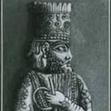Thomas Yaeger's Blog, page 8
June 6, 2019
Magic or Magia? Plato's Sophist II
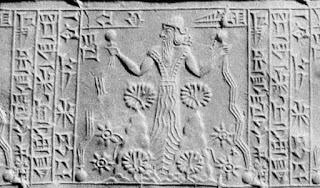
I remember analysing the structure of Plato’s The Sophist in 1994, but over time, I forgot about the argument it contains, or even that I’d made one. I batch-scanned a lot of paper documents in 2003, and the analysis of The Sophist was one of those. But I didn’t read it again until recently.
The original document is squibbish, was written quickly, and was never properly completed or edited. But, knowing what I now know, I’d found the essential arguments for the ancient priestly understanding...
Published on June 06, 2019 05:43
June 2, 2019
Magic or Magia? Plato's Sophist I
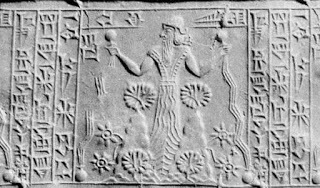
A discussion of the arguments in Plato's Sophist concerning the nature of what is real, and of the implications of the apparent conclusion that the One, as well as being unchanging, is also subject to change.
This is a short paper dating from October 1994, with a new expository introduction (May 2019), suggesting the importance of its argument for our understanding of the context of the dialogue and the various propositions which appear in the course of the dialogue. The article also contains...
Published on June 02, 2019 08:16
Magic or Magia? Plato's Sophist

A discussion of the arguments in Plato's Sophist concerning the nature of what is real, and of the implications of the apparent conclusion that the One, as well as being unchanging, is also subject to change.
This is a short paper dating from October 1994, with a new expository introduction (May 2019), suggesting the importance of its argument for our understanding of the context of the dialogue and the various propositions which appear in the course of the dialogue. The article also contains...
Published on June 02, 2019 08:16
May 25, 2019
The Frankforts on Parmenides (II)
Some facsimile pages from my notebooks, dating to August 1987, which review what Henri Frankfort and his colleagues had to say about Parmenides and the history of thought before the classical period in Greece. Click to enlarge the images. A page number followed by 'TN' indicates an internal notebook reference. The pages were scanned at 300 dpi, so they are easy to read if downloaded and opened in a viewer. Save the enlarged images for better resolution. The original pages are A4 format and si...
Published on May 25, 2019 04:00
May 24, 2019
The Frankforts on Parmenides (I)
Some facsimile pages from August 1987, which review what Henri Frankfort and his colleagues had to say about Parmenides and the history of thought before the classical period in Greece. Click to enlarge the images. A page number followed by 'TN' indicates an internal reference. The pages were scanned at 300 dpi, so they are easy to read if downloaded and opened in a viewer.
In Britain the Frankfort collaboration was published as Before Philosophy; in the US it had the title of The...
In Britain the Frankfort collaboration was published as Before Philosophy; in the US it had the title of The...
Published on May 24, 2019 03:53
May 20, 2019
The Platonic Theory of Being (full text)
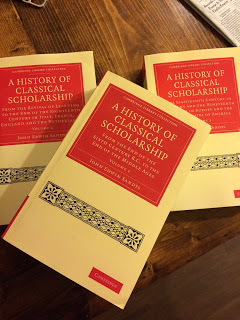
This is the full text of the chapter 'The Platonic Theory of Being', first published in The Sacred History of Being, in 2015. The core argument of the book is contained in this chapter.
The argument here is that Plato is writing about Greek religion, and that philosophy and religion in his time are tightly intertwined. The modern consensus view is that philosophy is a discipline that supersedes religious thought. Yet there is a sentence in Plato's Sophist which makes it clear that his discussi...
Published on May 20, 2019 13:37
May 17, 2019
The Destruction of Ancient Astronomy
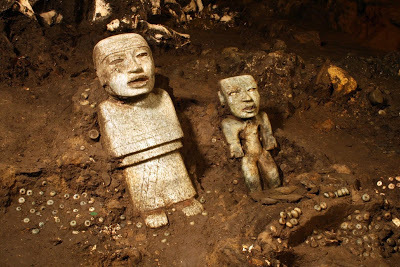
There is a tide in the affairs of men./Which, taken at the flood, leads on to fortune;/
Omitted, all the voyage of their life/Is bound in shallows and in miseries./
On such a full sea are we now afloat,/And we must take the current when it serves,/
Or lose our ventures./ (Brutus to Cassius, in Julius Caesar Act 4, scene 3, 218–224)
Of course that didn’t work out well in the end, since they chose to fight Octavian at Philippi, and lost. The point is however that everything has a tendency to follow...
Published on May 17, 2019 06:48
May 16, 2019
The View from Zenodo
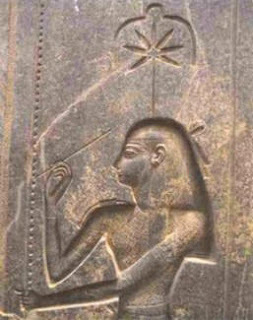
A number of my writings are available in PDF format at the CERN based Open Access repository Zenodo.
Why Zenodo? The repository is named after the first librarian of the Library of Alexandria, Zenodotus, whose floruit was around 280 B.C.E., and whose principal interest was editing Homer. He also introduced library metadata, which made it easier to know what was in a scroll, and where in the library it belonged. CERN has always been conscious of the importance of good metadata for the efficient...
Published on May 16, 2019 07:31
May 10, 2019
The Interpretation of Ancient History
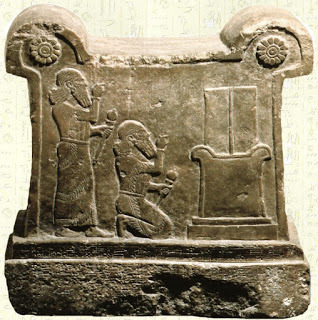
[This is the introduction for 'Mirrors of the Divine', due summer 2019.]
I’ve occasionally submitted work for competitions, and this work, as it now is, grew out of an extended essay I wrote in 1991-2 for a university prize offered while I was a student at UCL. For reasons which are all too obvious from the text, it didn’t win, and at the time I didn’t imagine that it would. This is because I began with an essay critical of historicist approaches to the study of the ancient world. The hi...
Published on May 10, 2019 14:26
May 5, 2019
Mirrors of the Divine (forthcoming, summer 2019)
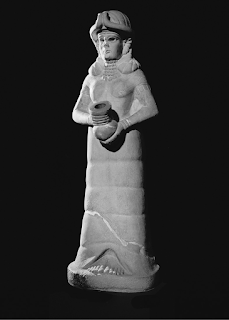
A peek at the contents of my new book, which will be available around June or July 2019. The page numbers are approximate, and come from the copy of the text currently being edited into shape (no pages numbers in the ebook version of course). The final word count will be around 48 thousand words. Two of the chapters - 'The Greek Ontological Model in the 1st Millennium B.C.E', and 'Patterns of thought in Late Neolithic and Early Bronze Age Britain', are quite large pieces of work (6k and 10k w...
Published on May 05, 2019 02:40

